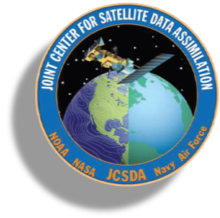CRTM
CRTM_coef v1.0
Release 1.0 is the first release of the transmittance coefficient generation code for the Community Radiative Transfer Model (CRTM), v2.4.0 and older. This standardized package exposes the core functionality of the CRTM and allows expert-level users to compute CRTM coefficients for their own MW and IR instruments. The agile development of the package ensures transparency and reproducibility of new instrument coefficients. Generic support for line-by-line radiative transfer models facilitates the development of new fast models, including machine learning approaches.
Access to the release is restricted to expert users among JCSDA partners as the software is computationally very expensive and requires familiarity with the underlying algorithms.
Features include:
Transmittance coefficient generation code for broadband and high-resolution IR instruments.
Support for Microwave instruments using the [Rosenkranz, 2003] model.
I/O support for LBLRTM from AER.
Spectral coefficient generation.
User Guide.
Example work directories for different instruments.
Value proposition for stakeholders:
Enabling JCSDA partner agencies to extend the CRTM with new instruments locally: No more requirement to share confidential instrument information.
Rapid introduction and testing of new instruments, including CubeSats.
Full transparency and reproducibility of the coefficient generation process.
Extendability: A modular framework that facilitates the development of new solvers and features.
Future proof: Continuous support for CRTM v2.4.0 and newer. No more broken legacy code.
Due to the fact that this is a restricted release, certain links below are only accessible with the right permissions.
crtm v2.4.0
Release 2.4.0 of the Community Radiative Transfer Model offers a number of substantial improvements over the preceding Release 2.3.0, but nevertheless ensures backwards-compatibility for long-term and operational users.
New features include:
Shared-memory OpenMP parallelization
NetCDF4 interfaces for Cloud- and Aerosol coefficients
The pyCRTM interface
Github integration, ecbuild build system, and unit test environment
Date
2020-10-28
